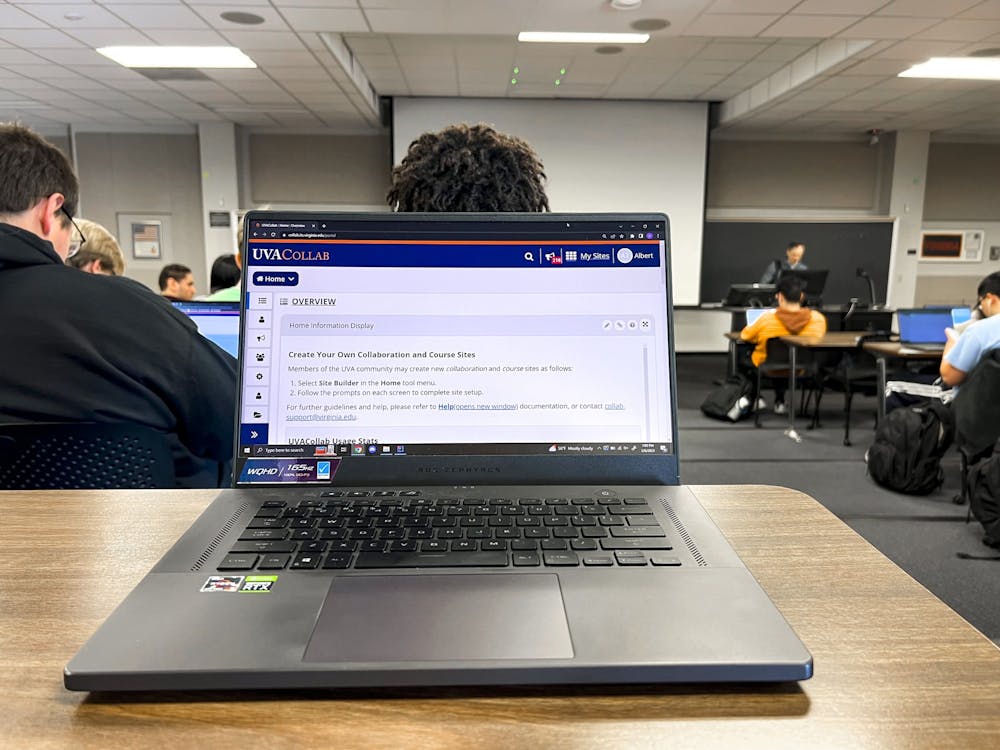For a generation of college students raised in the digital age, it often comes as a surprise when professors establish no-technology policies on the first day of class. Professors support these policies by claiming that banning technology reduces distractions and encourages handwritten notes, overall leading to better retention of information. These bans extend to laptops, which some students with disabilities depend on for success in class. While no-technology policies have good intentions behind them, they negatively impact students with disabilities by isolating them and adding to disability stigmas.
While some professors may argue that no-technology policies aren’t necessarily harmful to students with disabilities because they can receive permission to use technology by filing an application with the Student Disability Access Center, we should avoid isolating students with special needs whenever possible. SDAC can provide accommodations for typing notes and recording lectures, they cannot change the stigmas surrounding disability that may make a student feel alienated in the classroom. For example, if a student is using a laptop to take notes in a room of students not allowed to touch their laptops, that student may feel singled out. The student may then feel the need to justify their laptop use to others, which they should not have to do unless they want to. Disability is a sensitive topic, and students should not feel pressured to justify their needs to their peers for the sake of a technology ban.
Students with SDAC accommodations might not only feel singled out amongst their peers in no-technology classes, but also may have uncomfortable interactions with professors. By supporting their no-technology policies with claims that laptops lead to more distractions and less effective notes, professors imply that students who need laptops do not perform to their standards. When a professor expresses explicit distaste for laptops, it can be uncomfortable for a student to ask for their accommodation. Students should not have to feel like their needs are a burden, and implementing no-technology policies does just that — creating a negative learning environment.
It is also essential to consider that there are students who have disabilities but do not have accommodations. A student’s lack of accommodations could be because they find the SDAC process challenging, they have a currently undiagnosed disability or they thought they would have more freedom to use technology in college. It is wrong that a student who has never needed technology-related accommodations can sign up for a class that interests them just to find out that they actually do need an accommodation to perform well. Now, they must fill out paperwork, get forms signed by a treating provider and meet with an SDAC advisor to succeed in class. By the time they secure their accommodation, they may have already fallen behind.
Professors with no-technology policies also overlook the benefits of typed notes for both students with and without disabilities. Having access to a laptop in class can help students copy down information faster and have more legible notes. While bad handwriting likely does not qualify for SDAC accommodations, these note-taking needs further show that technology in the classroom has benefits. Professors may argue that the benefits of typed notes do not outweigh the cost of potential online districations, but that should be the choice of the student to make. In general, college should be a time to grow and develop independence. Students should be allowed to exercise that independence by choosing if handwritten or typed notes work better for them.
While there are many ways no-technology policies harm students,it is also important to investigate the benefits professors claim exist. An initial study showed handwriting to be the best method for notetaking, but a replication of the study could not generate the same results. The replicated study demonstrates that the conclusion that handwritten notes are better than typed notes is “premature.” This study reflects that no-technology policies are not as useful as professors claim them to be. For a generation of students raised on laptops, it is essential that more studies on handwritten notes are done before professors jump to technology bans.
No-technology policies cause more harm than they do good. Professors paternalistically banning technology causes an array of unnecessary problems. I do not stand to say professors are intentionally engaging in discriminatory practices. Instead, I beg professors to reconsider the effect banning technology from their classrooms has on students.
Mikayla Havison is a Viewpoint Writer who writes about University Life for The Cavalier Daily. She can be reached at opinion@cavalierdaily.com.
The opinions expressed in this column are not necessarily those of The Cavalier Daily. Columns represent the views of the authors alone.







